Geronimo Rodriguez went from a migrant worker to the White House.
But on the day of his greatest success, it all fell apart. Here's why he doesn't see it that way.
When Geronimo Rodriguez was 13 years old, his life did not follow the typical school calendar. In the summer, he and his three younger brothers and one sister would ride in the camper of his folks’ Ford F-150 pickup truck up to Lynden, Washington, where they would pick strawberries, raspberries, and blueberries. Then came two weeks of bringing in the cucumbers in September. After that they would head south for the potato harvest in Hermiston, Oregon where he’d finally start his school year.
Over Thanksgiving break, the family would load up the truck again because citrus was in season in South Texas. He and his siblings would transfer to schools in Alamo, a town on the Mexican border, where they would stay until it was time to pick asparagus in Granger, Washington. In Granger, Geronimo went to a special night school for the kids of migrant workers. “I went to night school three times a week, three hours a night, and worked full time from the seventh grade on,” remembers Geronimo.
He almost sounds like he’s bragging when he says it, but Geronimo, a soft-spoken, self-assured man, isn’t the bragging type. He only ever raises his voice when he spots something that doesn’t seem fair, like the time a supervisor told him and his friends to quiet down when they were laughing too loudly during a lunch break in the fields. Geronimo let that guy have it. “I would be the one that would always see the injustice in things,” says Geronimo. “I was a pain in the rear.” But his brothers and sister looked up to him. You should be a lawyer, they told him. You should go to college.
This was in the summer of 1982. They were in the back of that truck bed camper, all five of them, some sitting, some lying down, after a day of picking berries in Lynden. “I'm not gonna graduate from high school, much less go to college,” he told them, explaining that you needed so many credits to graduate from high school, and the two weeks they spent picking cucumbers in September meant he – and by extension, his three brothers and one sister – could only look forward to the life they already knew, an annual journey dictated by harvests: berries, cucumbers, potatoes, citrus, and asparagus.
The next morning, Geronimo’s parents told them to pack up their luggage. Geronimo knew this wasn’t right. After berries came the cucumbers, and only then would they head to Oregon for potatoes, and school. But they did as they were told and packed their bags.
“And our luggage was a garbage bag,” he says. “Each one of us got a garbage bag. We put all our clothes in it. So we're driving back and we're thinking that we're going to Oregon. We pass Oregon. And we're like, ‘Mom, dad, where are we going?’ And finally my mom shared that they had heard the conversation.” No more cucumbers, they decided. From now on, they’d start the school year in Texas and move over spring break to Washington where they could go to night school. Forty years later, Geronimo points to that decision as the key to unlocking everything that came after.
The College Assistance Migrant Program got him an opportunity for a college education at St. Edward’s University in Austin, where he got elected student body president. Next came the Maxwell School of Citizenship and Public Affairs at Syracuse University and the University of Texas School of Law. He did a couple years as Assistant Attorney General of Texas before landing in the East wing of the Clinton White House, first in legislative affairs, and then intergovernmental affairs and in presidential personnel, followed by a couple years in the Department of Labor.
After working as one of five political directors for Gore/Lieberman, though, his time in DC was over, and he came back to join the Austin equivalent of a white shoe law firm. After five years, his wife got sick of him pointing out injustices and urged him back into public service. A senior gig in advocacy and community outreach for a large hospital chain suited him for a while until a friend on the Austin school board called in 2017. He was stepping down – it’s an unpaid position, and he was spending more time on school business than on his own – and he wanted to know if Geronimo was interested in being appointed to serve the remaining 16 months of his term. Geronimo couldn’t say no.
“When you grow up and you see yourself as a leader, one of the obligations you have is to block and tackle for people, remove barriers, and make sure that they have the opportunities,” he said. “I wanted to make sure that kids that look like me had the opportunities.”
His parents sacrificed to make it possible for him to graduate high school. The school board was a chance to pay it forward.
It wouldn’t be a picnic, though. The school board, which immediately elected him vice president, was best known for quarreling on the dais and not being forthcoming about plans to close schools and how Black and Latino students scores’ were much lower than those of the white kids. The district preferred to aggregate the data and just say everything was fine, which it was for my two sons. For kids who looked like Geronimo, not so much. Eight months later, the board president got caught calling community activists “poverty pimps” and resigned. The board elected Geronimo to replace her, and suddenly he was president of the school board without ever having stood for election.
Imagine, in a moment of such tumult, rancor, and distrust, that this unelected leader steps to a bank of microphones to address the news media. Does he say, “I alone can fix it?” “We have nothing to fear but fear itself?” “Read my lips: No new school closures?”
No. Geronimo’s message was the most boring stuff you can imagine.
“I believe that good governance brings you good policy, and good policy is good politics,” he says. “And I don't believe in the opposite of that.”
See? The. Most. Boring. Stuff. Imaginable.
To be fair, he wasn’t wrong, and there was more to it. He thought the school board needed to define what it stood for, why it was doing this work, and where it was headed. The board also needed to act like grownups. “And then we have to hold our system accountable in a way that's both transparent and will get us the outcomes that we want,” he says, by which he means disaggregating the data showing Black and Latino students lagging behind the white kids and publishing it on the website where everyone can see it.
All of which is Geronimo’s super-nice way of saying that when he got there the school board was unfocused, acting childish, and not being super honest about how it was doing for the kids who needed the most help. “There was no structure in place to have that kind of collaborative, institutionalized way of driving down change,” he says, so Geronimo created smaller committees to allow trustees to collaborate on those decisions.
Acrimony decreased as a result, and they were able to settle on a few metrics to hold the superintendent accountable. Geronimo finally stood for election in 2018 and won, beating back a high tide of ill feelings caused by the school closures, and a year of relative stability passed in 2019, promising good times ahead in 2020.
I don’t have to tell you what happened next. The pandemic forced schools to replatform public education from a classroom model to a virtual model in which kids went to school on their beds and working parents, forced into IT roles to support their children, went slowly insane. Everyone was waiting for the vaccines to arrive.
“When you leave your title and position at the door, it is amazing what you can do together.”
We all celebrated the frontline workers in the early days of the pandemic. When we imagined the front lines of the pandemic, we thought of nurses, grocery store cashiers, and fire fighters, even journalists. We didn’t think of teachers because initially they weren’t on the front lines, though no one could say they weren’t essential.
But as the Chief Advocacy Officer for a hospital chain, Geronimo led the Emergency Medical Response Unit. That perfectly positioned him to get some of the first vaccines into the arms of Austin educators. Then he played a key if unheralded role in organizing the mass vaccination events at the local Formula 1 track.
“I'm really proud of all the work that we did behind the scenes. I mean, nobody cared about taking the credit. Nobody cared about their title, nobody cared about their position. All we cared about was making sure that people were safe, they were healthy, and that we were saving lives,” he says.
The long days at the race track reminded him in more than one way of when he was a kid working in the fields full-time before going to night school for three hours. There was the exhaustion, of course. And then there were the bean and cheese tacos.
“When I was a kid, we would eat tacos in the morning before we'd go to work. And then you work all day, and you just don't have time for a 30-minute break for lunch. I learned to love cold refried bean tacos. And so during the vaccination clinics and when they were feeding us, I would find the bean and cheese tacos. And I would stick some in my pocket. And so we'd be delivering vaccines, helping out with the pharmacy folks, you know, doing whatever,” said Geronimo, who said he still makes a habit of sticking bean and cheese tacos in his suit pockets whenever they’re available. “You get hungry at different times, so I just pull out a bean and cheese taco.”
“I learned to love cold refried bean tacos.”
Almost 350,000 people ended up getting jabbed at the race track, 70% of whom came from the Latino community. And partly as a result of those early vaccinations Geronimo secured for teachers as well as the hundreds of thousands of jabs that followed – not to mention the district flouting the Governor’s ban on requiring masks – Geronimo’s school district had only five deaths due to COVID, none of whom were children.
“When you leave your title and position at the door, it is amazing what you can do together,” he said, either not noticing or more likely not caring about the inevitable consequence of leaving your title and position at the door. No one knows that the exhausted man eating a taco is the school board president. We say we want leaders who do the work and don’t go around beating their chests. And putting your ego aside to save hundreds of thousands of lives, not to mention making it safe for teachers to return to the classroom, is definitionally heroic. But how are you supposed to know that the tired guy eating a taco is a hero?
A health scare in 2021 caused him to question his situation. He had a wife and a kid by now, and with a re-election race coming up in 2022 he had to ask if he would rather have dinner at home with them or stay up to 3 in the morning at a school board meeting. He kept going back and forth, more often leaning against another run.
He pressed on despite his Hamleting, presiding over the first two balanced budgets since he had joined the board. “That's so important because that has allowed us to use some of our reserves to get into some of these priority areas and fund them in a way that I think is appropriate,” he said. They raised the district’s minimum wage twice and gave teachers a pay increase, though admittedly not nearly enough.
And the hard work teachers did during the pandemic paid off in surprisingly good school ratings. While the national narrative was about learning loss and teacher shortages, Austin doubled the number of its top-rated schools and nearly halved the number of schools rated D or F under the state system. Compared to the rest of the state and to urban school districts across the country that slipped during the pandemic, Austin’s kids “held steady,” according to the nation’s report card. And best of all, poor Black and Latino third graders were showing growth in math, which ain’t nothing.
But those results were so surprising, so counter to the doom and gloom narrative that they didn’t register. All anyone wanted to talk about was the teacher shortage, all but ignoring the incredible job done by the teachers who stuck it out. It’s hard to feel happy about anything, much less test scores, during a mental health crisis when the stress feels like it’s scraping the inside of your skin.
“I thought the hardest thing serving on the board was navigating through COVID. What I realized is that the hardest thing to do is navigating out of COVID,” he says.
“I thought the hardest thing serving on the board was navigating through COVID. What I realized is that the hardest thing to do is navigating out of COVID.”
Geronimo didn’t particularly care whether he got credit for any of this, which might not have been the smartest approach in an election year. It was the bond that convinced him to file for re-election. Work on the $1 billion-plus bond passed in 2017 was nearing completion, and a citizen-led group was working with the district on a new $1.75-billion bond proposal.
The school board kept upping the ante, prodding the CFO to rejigger the payment schedule to fit more money into the same debt capacity. I sat next to the district’s CFO when he was penciling this out during a school board meeting, and I can’t explain it to you any better than my buddy Ed figured out how to stretch a penny to get the bond up to $2.44 billion, with an overwhelming majority of the money going to rebuild schools in poor neighborhoods.
“When you look at that 80% of the money is going to Title 1 schools,” says Geronimo, “it's a great opportunity for what the school district can do for kids that look like me.” Now was not the time to walk away. He filed for re-election and spent all his time working to pass the bond, helping to raise about $400,000 for that effort. Meanwhile, I don’t know if I saw a single yard sign with his name on it. Campaign season is a helluva time to leave your title and position at the door. And it didn’t help that he took a week off in October to help his parents pick potatoes in Oregon.
On Election Night, I was wrangling the press at the district’s watch party. A reporter for a local affiliate needed Geronimo for an on-camera interview, so when he arrived I pulled him over. He had not seen the election results and asked to look at the reporter’s tablet before the interview. I’d been focused on the bond which was winning by a huge margin. I had not thought to look at the school board races and was standing next to Geronimo when he saw that he was losing by a two-to-one margin to a candidate who quit teaching during the pandemic. For what it’s worth, Geronimo’s opponent was endorsed by the teacher’s union.
The first thing that went though his mind was, “Well, that closes that chapter.” Geronimo smiled big for the camera and told the TV audience at home how incredibly proud and excited he was about what the $2.4 billion bond package is gonna mean for kids, most of whom looked like him. And the next day, he stood up at a press conference and thanked the same voters who voted him out for passing the bond.
“I don't feel like [the voters] fired me,” he now says. “I feel like they decided to go in a different direction. You have to respect the results of a democracy when voters vote and choose your opponent. You have to respect that, and I can't believe I have to say that.”
Besides, he says, “half of the buildings will have our names on 'em.” It’s true. When a school is built they put up a plaque with the names of the school board that put the bond on the ballot. Forty years from now, kids are going to be walking through schools where the name Geronimo Rodriguez will be embossed in brass. Think of it like that Greek proverb referenced in Hamilton’s “One Last Time”: “Blessed are old people who plant trees knowing that they shall never sit in the shade of their foliage.”
“Hopefully, history will show that we've made it a little bit better than when we first came in five years ago,” he says.
And of course, because he’s Geronimo, he’s not getting any downtime. A spot opened up on the Board of Trustees for St. Edward’s University, the same school that runs the College Assistance Migrant Program that gave him and now 2,500 migrant sons and daughters of migrant farm workers a chance to go to college. “Talk about another opportunity to pay it forward,” he says.
Jason Stanford is the co-author of NYT-best selling Forget the Alamo: The Rise and Fall of an American Myth. His bylines have appeared in the Washington Post, Time, and Texas Monthly, among others. Follow him on Twitter @JasStanford.
Thanks to Noom, I lost 40 pounds over 2020-21 and have kept it off since then. Click on the blue box to get 20% off. Seriously, this works. No, this isn’t an ad. Yes, I really lost all that weight with Noom.
We set up a merch table in the back where you can get T-shirts, coffee mugs, and even tote bags now. Show the world that you’re part of The Experiment.
We’ve also got a tip jar, and I promise to waste every cent you give me on having fun, because writing this newsletter for you is some
Buy the book Texas Lt. Gov. Dan Patrick banned from the Bullock Texas History Museum: Forget the Alamo: The Rise and Fall of the American Myth by Bryan Burrough, Chris Tomlinson, and myself is out from Penguin Random House. Out in paperback now!




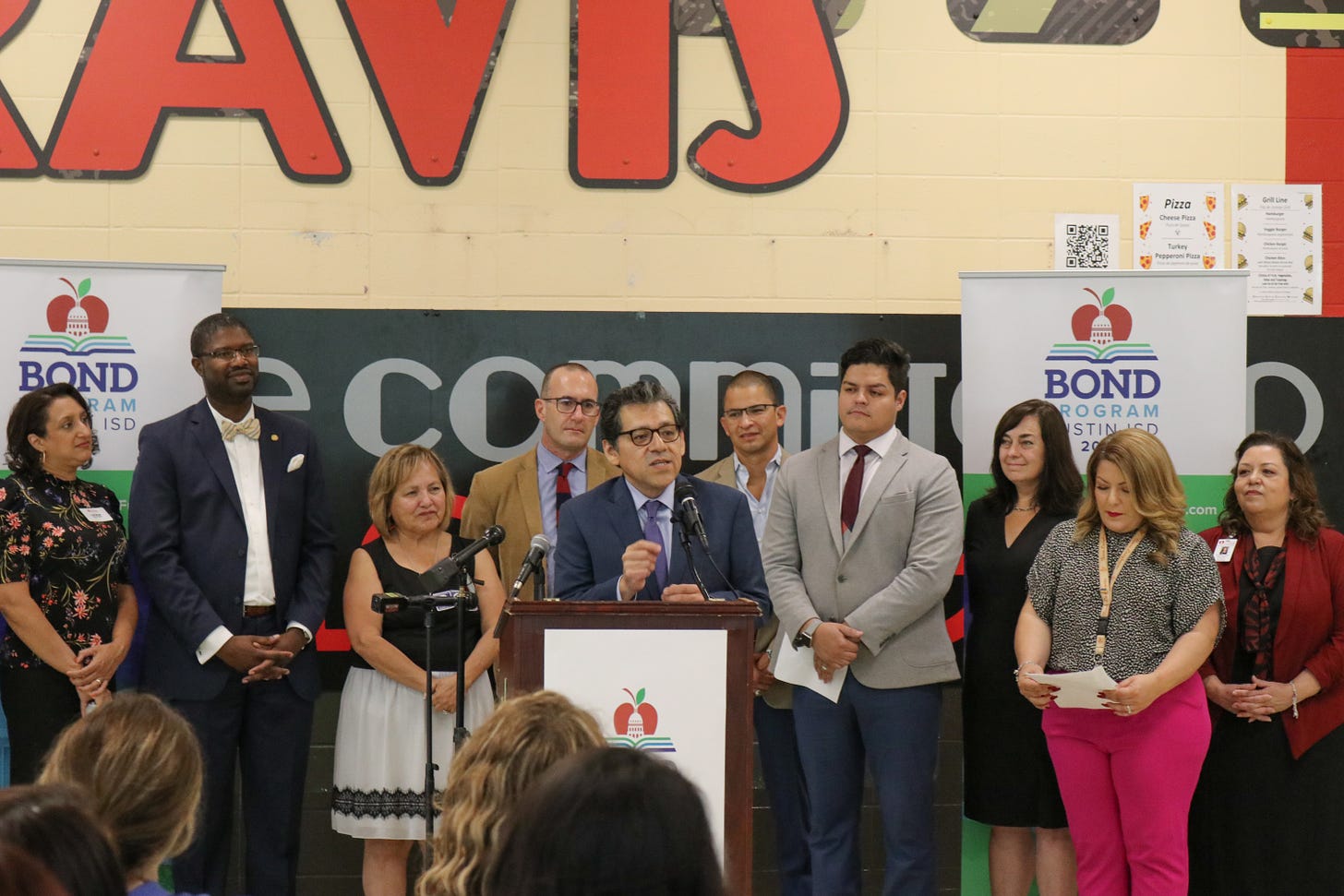

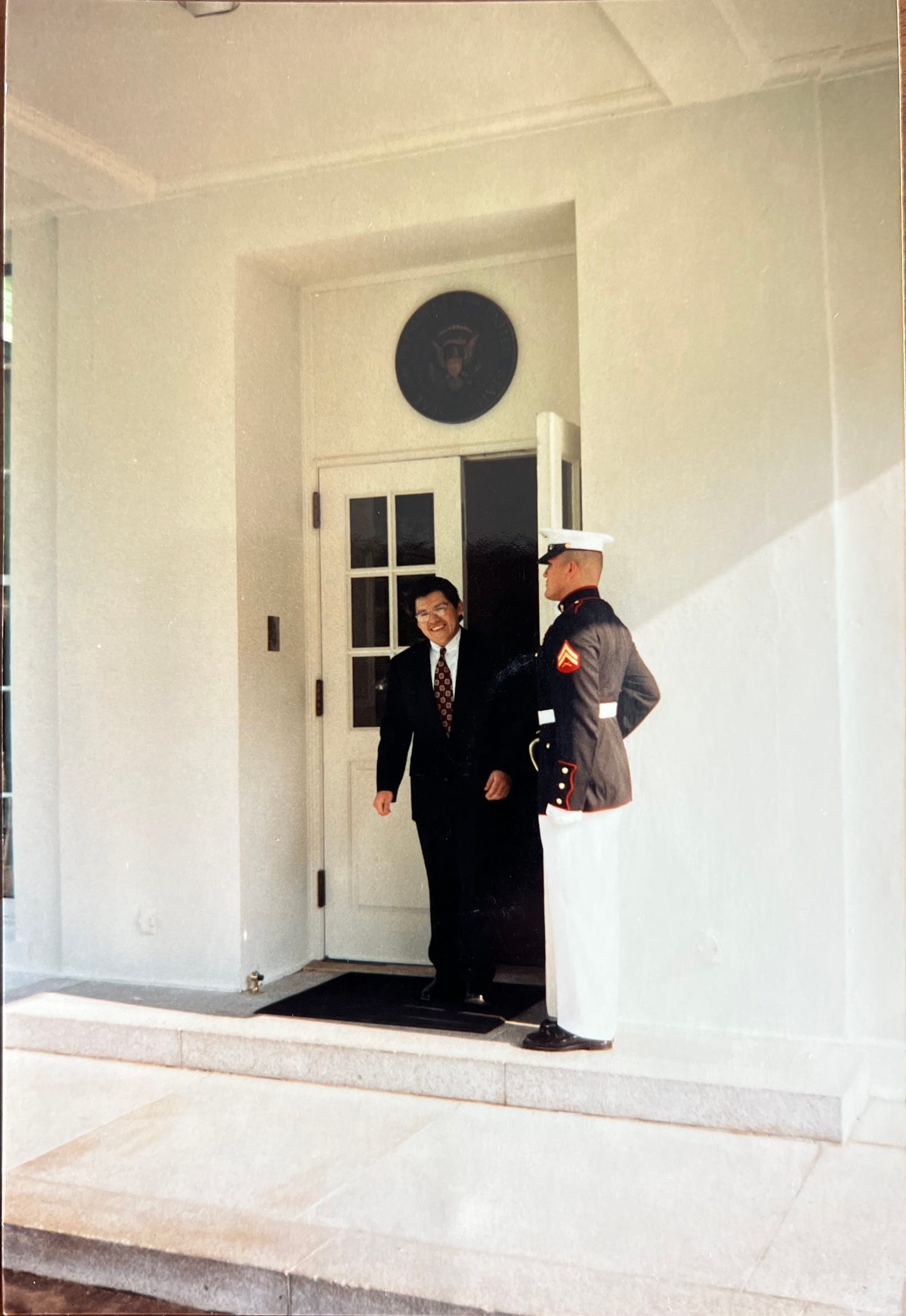
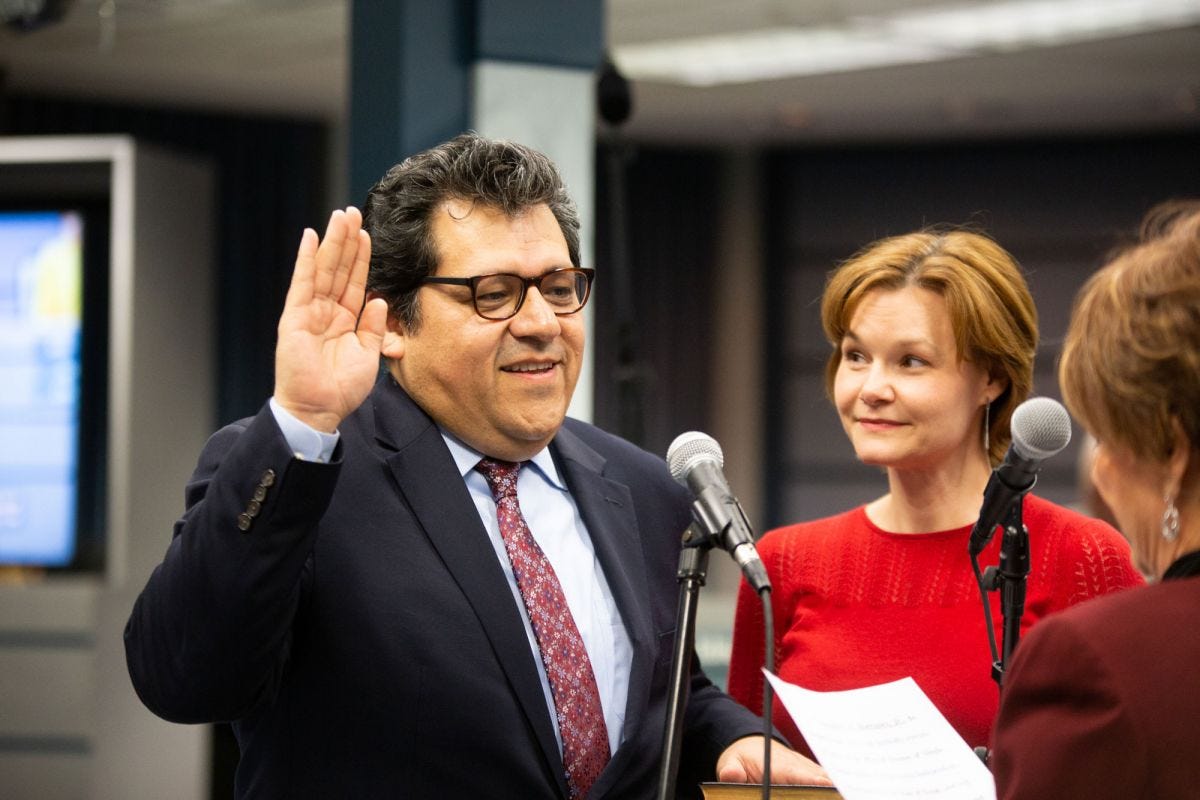
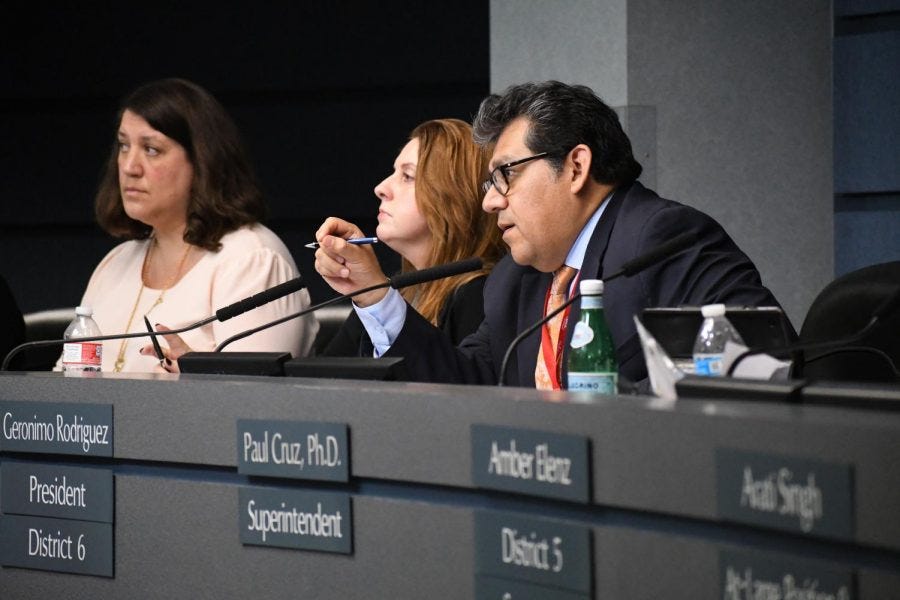
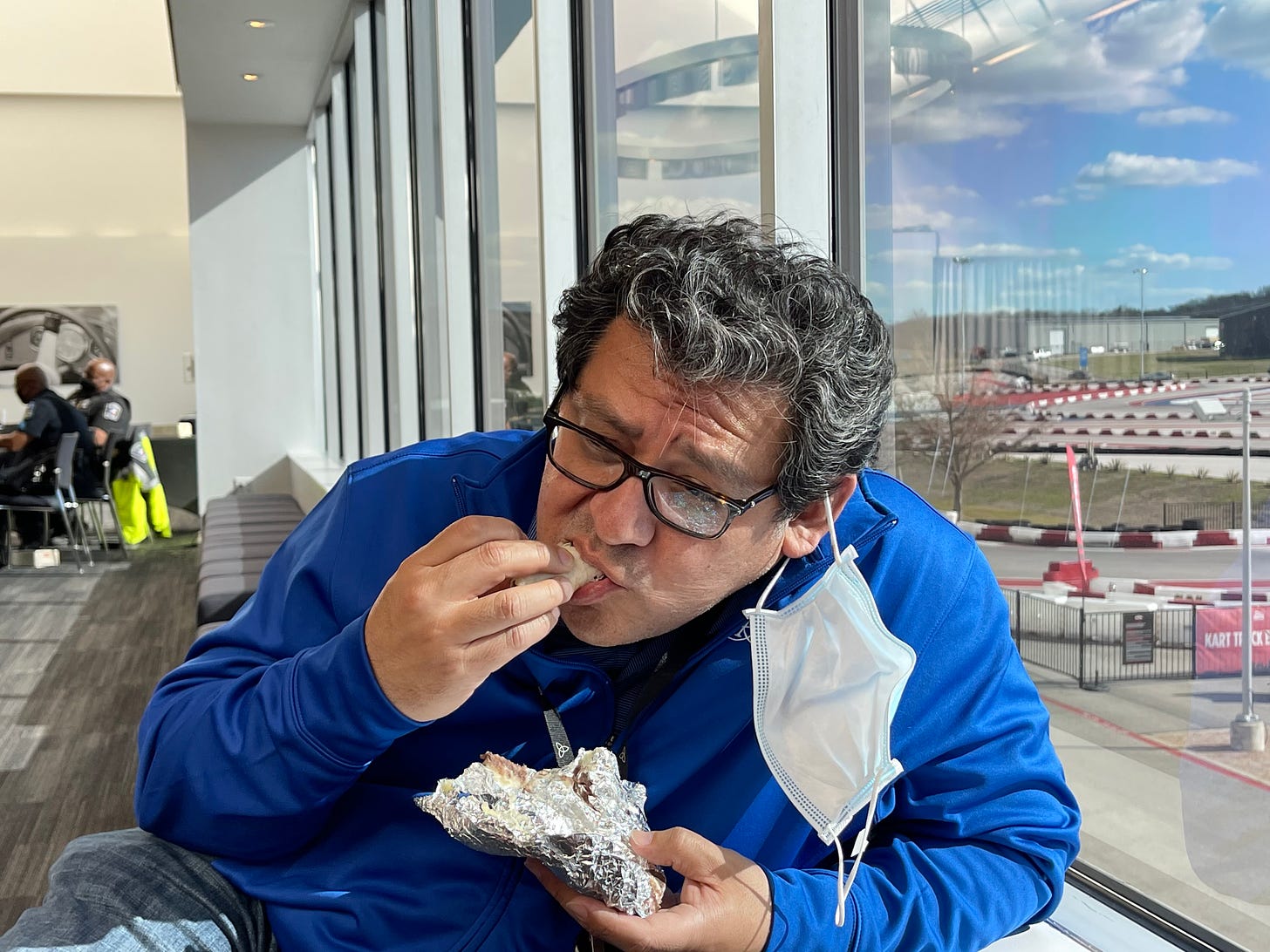

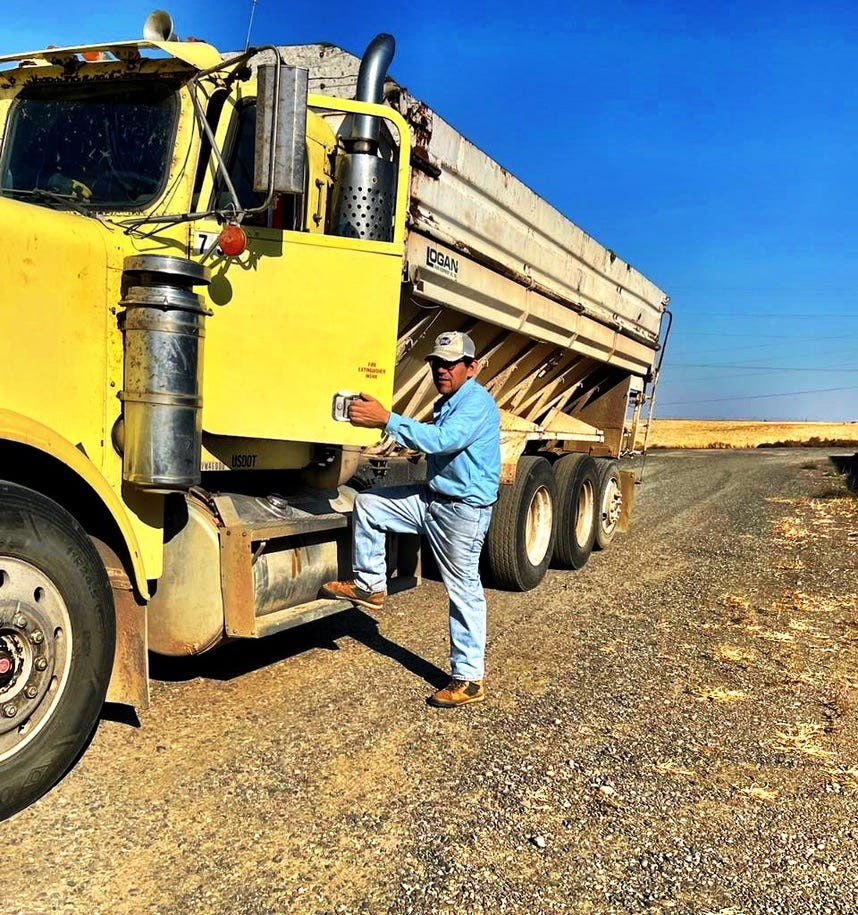
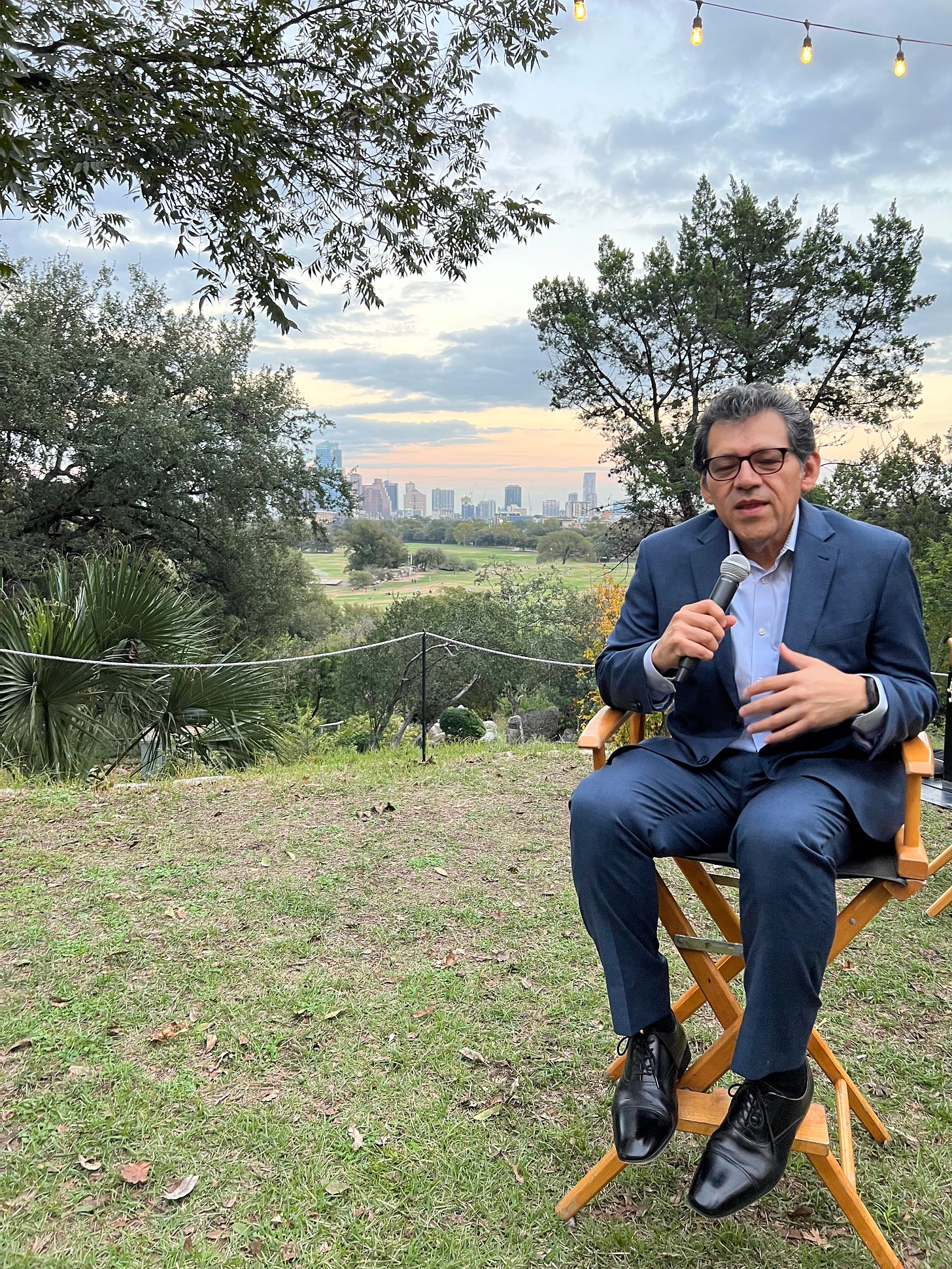
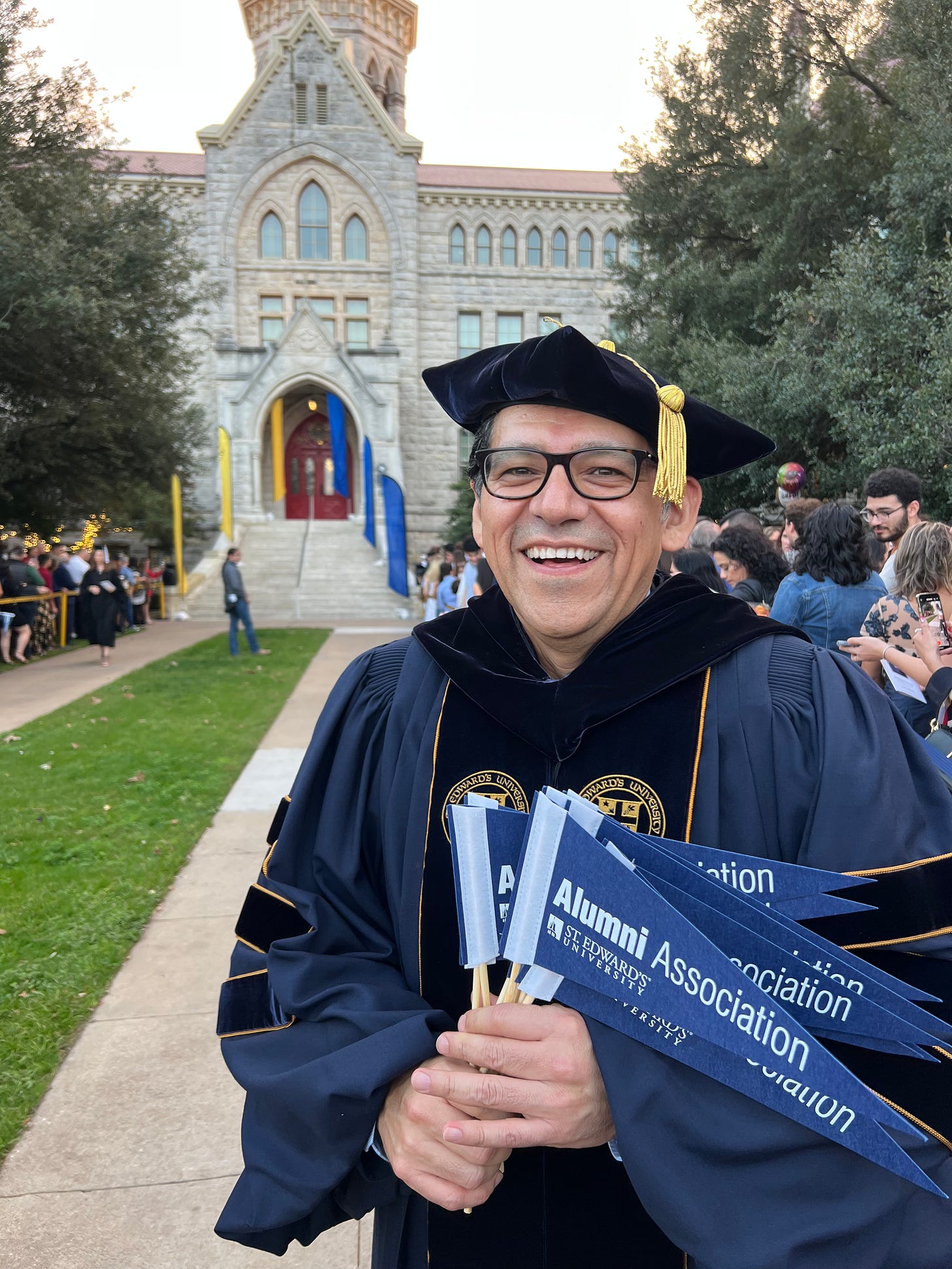
Jason,
Thank you for this narrative! I’m glad to have learned about Geronimo’s inspiring life!
Great tribute by one public servant to another. Thanks for writing, and good luck on your new adventures in the Big D!